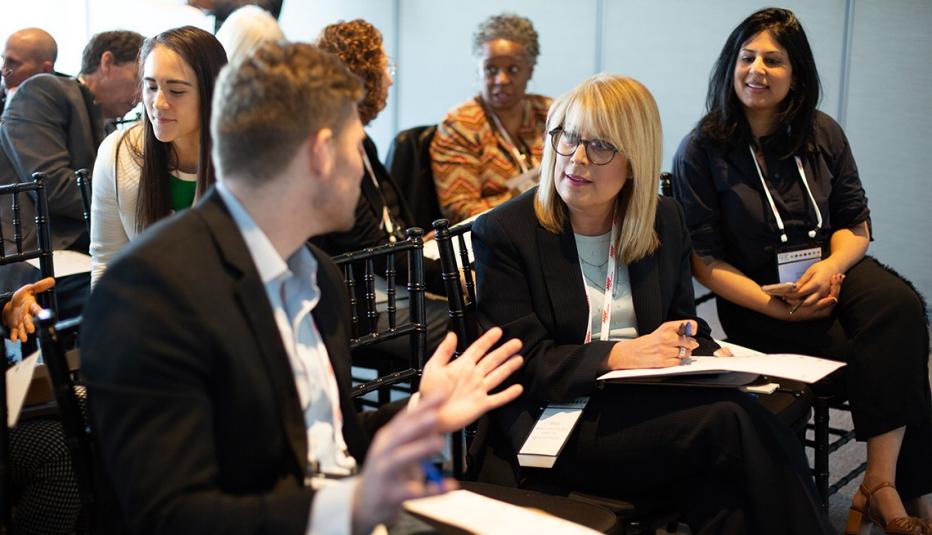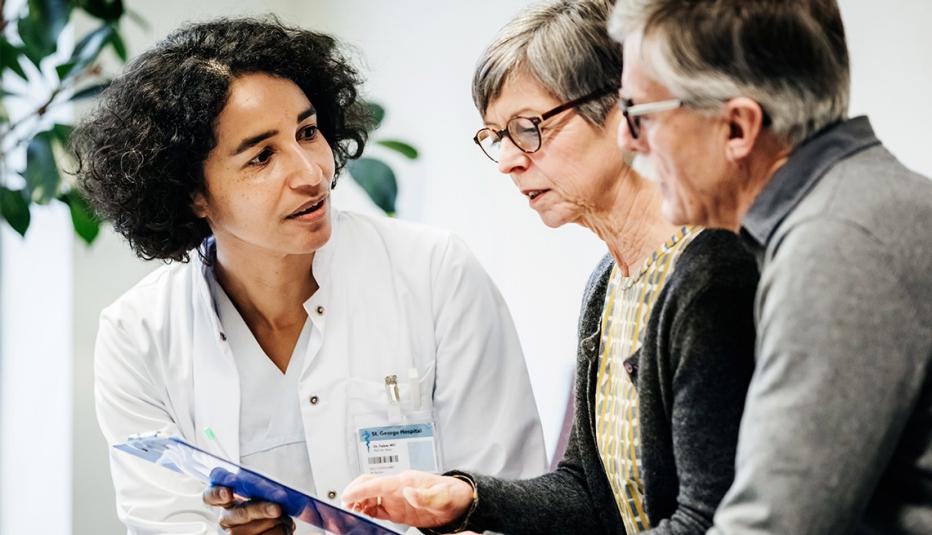AARP Hearing Center
AARP surveyed Americans 50-plus to better understand their immediate, mid-, and long-term financial concerns.


Older Americans are experiencing a variety of financial concerns in the wake of the COVID-19 pandemic. From having enough income to pay bills and managing health care costs to the rising costs of inflation and saving for retirement, Americans 50-plus have a lot to worry about.
But for women ages 50–64, those concerns are particularly acute.
These women are more likely to express strain across a variety of financial fronts:
- Nearly four in 10 (39%) women 50–64 say the economy is not working well for them personally, compared to roughly three in 10 women 65-plus (29%), men 50–64 (33%), and men 65-plus (29%).
- Two-thirds (67%) are very or somewhat worried that prices are rising faster than income, compared to 59% of women 65-plus, 59% of men 50–64, and 44% of men 65-plus.
- Close to half (49%) of women 50–64 — compared to men 50–64 (44%), women 65-plus (31%) and men 65-plus (28%) — say they have taken unplanned negative action, such as
- Skipping medical care because it was too expensive
- Prioritizing the health of a loved one over their own
- Skipping/reducing prescription medication due to costs
- An unexpected expense of $1,000 would be a major setback for more than four in 10 (42%) women 50–64, compared to three in 10 (32%) for men in the same age group.
- Fewer than one in 10 (9%) women 50–64 are very confident that they will have enough money to live comfortably throughout their retirement years. In fact, these women are nearly three times more likely to be not at all confident (25%) than very confident. In contrast, confidence is higher among women 65-plus, with 16% very confident versus 10% not at all confident. And, men 65-plus are three times more likely to be very confident (30%) than not at all confident (9%).
- Women 50–64 (47%) who lack confidence in having enough money for comfortable retirement cite the following reasons:
- Social Security not being enough to make ends meet
- Not having saved enough for retirement
- Not being confident in the economy
- Not making enough money to save for retirement
Methodology
This Foresight 50+ Consumer Omnibus survey of 2,116 people ages 50-plus was conducted by NORC at the University of Chicago from September 16 through September 22, 2021. The Foresight 50+ panel is the most representative probability panel among adults ages 50 and older available in the U.S. marketplace. The Omnibus is administered in mixed mode: About 90% of the interviews are conducted online and about 10% are conducted by phone. Data are weighted to the latest Current Population Survey (CPS) benchmarks developed by the U.S. Census Bureau and are balanced by gender, age, education, race/ethnicity, region, and AARP Membership. The weighted data reflect the U.S. population of adults ages 50 and over.
For more information, contact Rachelle Cummins at rcummins@aarp.org. For media inquiries, contact External Relations at media@aarp.org.






























































